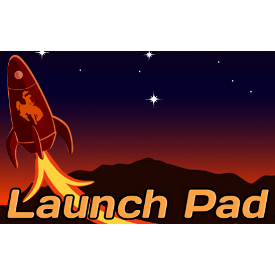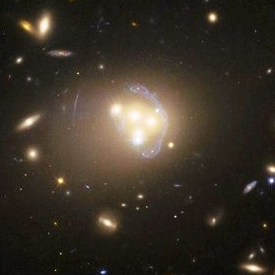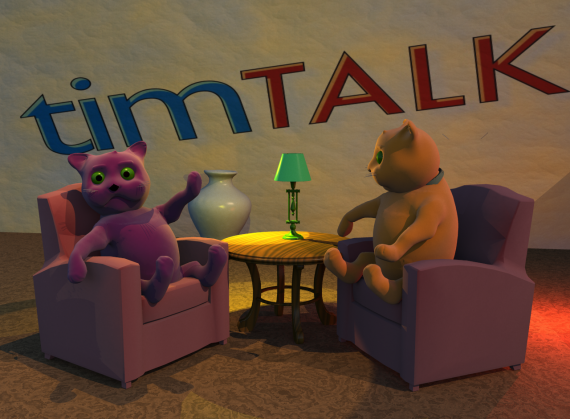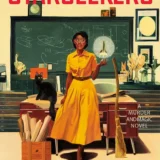 The Launch Pad Astronomy Workshop, offered by astronomer and science fiction author Michael Brotherton, is an annual event supported by grants and donations that seeks to provide authors and others in the field of science fiction a crash course in astronomy, physics, cosmology and the technical fields supporting those endeavors – imaging, statistical analysis, astronomical hardware and the like.
The Launch Pad Astronomy Workshop, offered by astronomer and science fiction author Michael Brotherton, is an annual event supported by grants and donations that seeks to provide authors and others in the field of science fiction a crash course in astronomy, physics, cosmology and the technical fields supporting those endeavors – imaging, statistical analysis, astronomical hardware and the like.
Launch Pad is a week long workshop, held on the beautiful campus of the University of Wyoming in Laramie, Wyoming. It’s part of the ‘big sky’ area of the US and the description is apt – one can see for miles and miles and miles. Attendees are provided room and board expenses* and housed in student housing (this year and last both using the Honor House facility, formerly a fraternity house, with dual occupancy rooms, kitchen, lounge, laundry & etc. facilities). Science labs in various campus buildings are used throughout the course, and students – if they can handle the additional altitude, also visit the WIRO infrared astronomy facility at the Red Buttes observatory. Laramie is at an elevation of 7,165 feet above sea level; Red Buttes at 7,369 feet. (That extra 200 feet makes a difference!) (*Some assistance with travel expenses may be available.)
Yours truly was fortunate (very, very fortunate) to have been invited to attend the Workshop’s 2015 session. I had a wonderful time (my instructors and fellow students were, to an individual, interesting, fascinating people) and learned quite a bit (probably the most important thing I learned was the confirmation of my understanding that “red matter” bears absolutely no relationship whatsoever to “dark matter”). Plans were made to do all manner of follow-up through Amazing Stories as well as with various individuals.

Unfortunately, life does intrude from time to time and those followup projects remain on the back-burner. (Blame me and Amazing, not anyone else.) So, when I learned that Jim C. Hines, famed author of the Goblin Quest fantasy series, champion of physically possible poses for women on book covers and all-around good guy had attended the 2016 Workshop, I decided to seek an interview with him about his experiences by way of partial compensation for my lack of followup.
Jim was enthusiastically willing. Our interview follows:
Steve Davidson for Amazing Stories Magazine: How did you hear about the Launch Pad Workshop?
Jim C. Hines: I heard about it years ago online — I think it might have been the Speculations writing boards, back when it was still active. At the time, I didn’t feel qualified to apply, in part because I was only writing fantasy.
But I kept an eye on how it was going from year to year, as well as the comments and reports from other attendees.
ASM: Was it a program you always wanted to participate in or was your interest piqued when you learned about it?
JCH: I’ve been interested in attending ever since I heard about the program, but there was the combination of needing to be able to leave for a week without causing difficulties with work or at home, and having a project where I thought the knowledge would be useful. This year, I’ve started working on my first SF trilogy, and I’d quit my day job last fall, so the timing was perfect.
ASM: How would you describe your familiarity with astronomy, cosmology, etc., prior to attending?
JCH: I think I had some basic foundational knowledge, but most of it wasn’t anything I’d studied in depth. I knew enough to answer most of my kids’ basic questions about space, which astronomical bodies orbit one another, how the seasons work, and so on. And I’d read Douglas Adams, so I knew space was big. Really big.
ASM: Would you say that you acquired useful information during the course of the workshop?
JCH: Absolutely! I’ve already begun incorporating bits and pieces into the book I’m working on. It also forced me to reevaluate my concept of just how big the universe really is, the likelihood of there being other life out there, and so much more.
ASM: Did the altitude affect you at all?
JCH: We had one case of altitude sickness in our group, and another attendee who tried to go for a run the first night and ended up having to cut it short. I didn’t have too much trouble, except when I’d stop to take a picture and then run to catch up with the others. I learned pretty quickly not to do that. (The running, not the photography.)
ASM: Have you ever viewed “space” through a scope as large as what they have at Laramie? Impressions? How did that view affect/change your perception of space?
JCH: I’ve got an 8″ scope at home, so I’ve been able to see things like Mars and Jupiter and Saturn and its moons. The scopes at the astronomy building were nicer, though. And Mike Brotherton was kind enough to bring his night-vision goggles, which lit up the sky with a lot more stars than you’d normally see.
Driving up to the WIRO observatory was even more eye-opening. We didn’t get to look through the scope itself, but being up that high at night with no moon, the view was amazing. It’s the first time I’d ever seen the Milky Way with my bare eyes. I don’t know that any of it changed my perception of space, but it was an awesome experience.
ASM: The class is taught by Michael Brotherton, Christian Ready and Jim Verley; I found them to be very up on their subjects, personable and effective instructors. Comments?
JCH: Mike, Christian, and Jim were great. Not only do they know their stuff and have a lot to share, their passion about the material is contagious. They were very generous with their time and knowledge. Five stars — would learn from them again.
ASM: Launch Pad tries to address the fact that many people writing science fiction (or indeed, any genre) do not have a scientific background. The basic concept is that it is (almost) as easy to write good science as it is to write bad, and an author should at least be able to tell when they are leaving the beaten path. Do you agree?
JCH: There’s a lot of badly-written science out there. One of the things we discussed is that people learn from stories as much or more than they do from the classroom. If your stories include lazy and inaccurate science, there will be readers who absorb and accept that as fact. I don’t know that I’d say it’s just as easy to write good science, but doing your best to get the science right is just good writing. And if you can do a little to improve people’s scientific literacy and understanding at the same time, so much the better!
ASM: Do you believe that fiction authors – particularly in a field that purports to be related to science – have a duty to try and get things right?
JCH: I think good writing in general means trying to get things right — whether that’s the science, the terminology about a particular field, a translated bit of dialogue in another language, or one of my personal pet peeves, the details of how diabetes actually affects people. (Seriously, Hollywood — call me the next time you want to use diabetes as a plot twist.) I’m reluctant to tell authors what their duty is, but I think back to how stories and shows can inspire people’s interest in space and science and engineering and more. If you want to inspire people, then I think you have to try to do justice to the science.
ASM: Can you think of any instances in your own writing in which getting the science right contributed directly to the story?
JCH: I spoke a bit to a geologist while writing my first published novel, Goblin Quest. It didn’t have too much of an effect on the story, but it did impact the makeup and look of the goblin tunnels, and added a lot of cool features I wouldn’t have otherwise included. I also spent some time and effort getting the psychology right in the Libriomancer series. Or as right as possible, given the characters.
ASM: How about the opposite? Have you ever fluffled the science and been taken to task for it?
JCH: When I was at the Writers of the Future workshop back in 2000, one of the exercises was to write a short story in 24 hours. I did one set on the moon, and completely bungled the effects of sunlight and solar radiation, to the point where the whole story unraveled. The instructors were kind enough to offer alternatives to help fix the story, but it remains one of my more embarrassing workshop experiences.
ASM: What did you think of the facilities? Housing, labs, the observatory, Laramie Wyoming in general? (Quite the open skies, huh?)
JCH: Beautiful weather, gorgeous campus… I wouldn’t have minded staying longer.
It was admittedly weird living in a dorm again after 20 years, and eating in a college cafeteria. (On the other hand, they had a soft-serve ice cream machine. Sweet!) The Honors House where we stayed was nice, though the bathrooms had no ventilation and tended to turn into saunas. But given that the program was covering room and board, I’m not going to complain! It was a wonderful campus. I wish I’d had more time to explore Laramie and more of Wyoming.
ASM: Can you sum up the value of your experience?
JCH: It feels like I came away with a semester’s worth of good, foundational astronomy. I have a better understanding of “space stuff,” and a better ability to track down additional answers and information. In other words, it’s not just that I know more now, I also have a better awareness of what I don’t know and how to address that. Just as valuable, I got to spend a week with some amazing and wonderful people who happened to be writers. It’s a lot of fun, and very energizing.
ASM: Are you incorporating anything you learned at the workshop into a current project? If not too spoilery, can you fill us in?
JCH: I’m working on a humorous SF novel with a small crew who…aren’t entirely qualified to be flying around space. I learned a lot I’ll be able to incorporate, and part of the fun is going to be rewriting the story to add scenes showing them getting the details wrong, and the consequences when they do. There are SO MANY ways to be wrong in space!
###
Jim C. Hines is the author of the Goblin series (Wil Wheaton stated the series is “too f***ing cool for words”); he is well known for his gender-flipping book cover poses that address issues of sexism in genre; he is a winner of the Writers of the Future contest and a Hugo Award for Best Fan Writer. In his own words:
Jim C. Hines’ first novel was Goblin Quest, the humorous tale of a nearsighted goblin runt and his pet fire-spider. Actor and author Wil Wheaton described the book as “too f***ing cool for words,” which is pretty much the Best Blurb Ever. After finishing the goblin trilogy, he went on to write the Princess series of fairy tale retellings and the Magic ex Libris books, a modern-day fantasy series about a magic-wielding librarian, a dryad, a secret society founded by Johannes Gutenberg, a flaming spider, and an enchanted convertible. He’s also the author of the Fable Legends tie-in Blood of Heroes. His short fiction has appeared in more than 50 magazines and anthologies.
Jim is an active blogger about topics ranging from sexism and harassment to zombie-themed Christmas carols, and won the Hugo Award for Best Fan Writer in 2012. He has an undergraduate degree in psychology and a Masters in English, and lives with his wife and two children in mid-Michigan. You can find him online at www.jimchines.com.
Jim is currently working on a science fiction novel. According to his website, he’s 95% completed with its first draft. We’re looking forward to seeing what influence the workshop has had on it.
###
Authors of speculative fiction and fellow-travelers, such as editors, publishers and artists, can learn more about the Launch Pad Astronomy Workshop on its website.
Steve Davidson is the publisher of Amazing Stories.
Steve has been a passionate fan of science fiction since the mid-60s, before he even knew what it was called.









